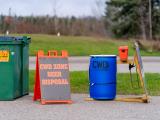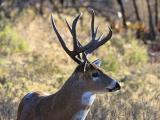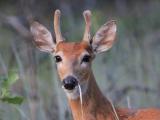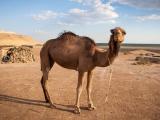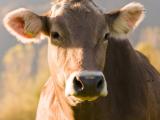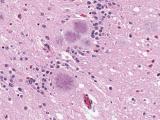Jul 12, 2005 (CIDRAP News) The US Department of Agriculture (USDA) says it has found no more cases of bovine spongiform encephalopathy (BSE) in the Texas cattle herd that the nation's second BSE-infected cow came from.
The agency announced 2 days ago that 67 cattle culled from the herd had all tested negative. A hold order on the herd, which has not been identified, was lifted yesterday.
Officials had said earlier that they would test all cattle in the herd that were born within a year before or after the 12-year-old Brahma cross beef cow that tested positive for BSE in June, plus any offspring of that cow born in the past 2 years.
The USDA's Animal and Plant Health Inspection Service said in an update today, "USDA has completed sorting and inventory of the animals on the index farm. This, along with the 67 negative test results from the index farm, led to the lifting of the hold order on the farm on Monday."
The agency said it was continuing to trace cattle from the infected cow's birth cohort that are no longer part of the same herd, but officials offered no information on the results of that search.
An Associated Press report in the Houston Chronicle said USDA officials would check market documents to trace cattle from the birth cohort. USDA spokesman Larry Cooper told the AP that there are no rules about how long markets must keep sale documents, but he expressed confidence that "a good number" of the cattle could be traced.
The infected cow had spent its entire life on the same ranch. Officials suspect that it contracted BSE by eating contaminated feed, since it was born well before the government banned feeding of cattle protein to cattle in 1997.
The cow arrived dead at a slaughterhouse last November and was then shipped to a pet food company in Waco, Tex. The carcass was kept out of the food and animal feed chains, and samples were tested for BSE. Initial screening tests were inconclusive, and subsequent immunohistochemistry (IHC) tests were negative.
But in early June, the USDA's inspector general requested a Western blot test on the cow's remains, and it came back positive. Further confirmatory tests at a reference lab in England were also positive. In announcing that result on Jun 24, the USDA said it would use both IHC and Western blot tests, instead of IHC only, to confirm or exclude possible BSE cases from then on.
The Texas cow had the first known case of BSE in a US-born animal. The nation's first case, detected in December 2003, involved a Canadian-born dairy cow in Washington state.
